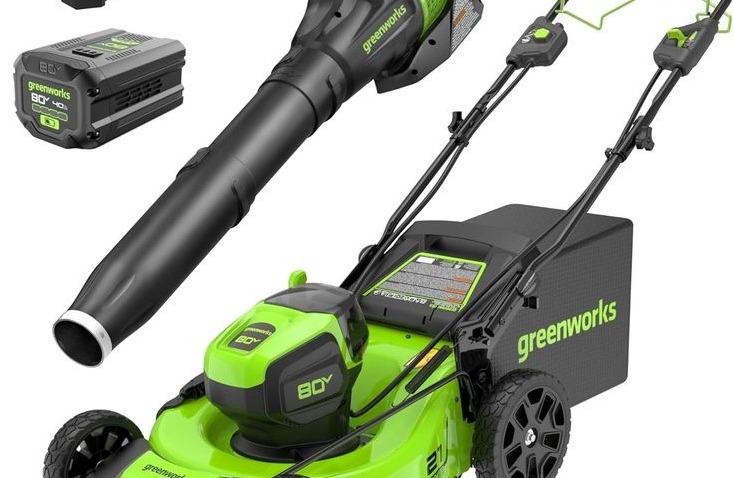
How Long Does a Lawnmower Battery Last: Essentials
Introduction to Lawnmower Batteries
How long does a lawnmower battery last? Understanding lawnmower batteries is key to optimal mower performance. These batteries are the power source for starting and running your lawnmower effectively. The right battery ensures a smooth lawn care routine and can be crucial when it comes to saving time and effort on maintenance.

Types of Lawnmower Batteries
Lawnmower batteries come in different types, each with their own benefits. The most common types are lead-acid and lithium-ion. Lead-acid batteries have been around for years and are known for their reliability and low cost. Lithium-ion batteries, on the other hand, offer a lighter, maintenance-free option with longer lifespans.
Factors Affecting Battery Lifespan
Several factors influence how long a lawnmower battery will last. These include the type of battery you choose, how often you use your mower, and the way you maintain and charge your battery. For example, lithium-ion batteries typically last longer than lead-acid ones. Proper charging and regular maintenance can also extend the lifespan of both battery types.
Benefits of Lithium-Ion Batteries
Lithium-ion batteries offer significant advantages for lawnmower users. These batteries are lighter, more efficient, and have a longer lifespan compared to traditional lead-acid batteries. Importantly, they require minimal maintenance, making them an ideal choice for convenient lawn care.
Comparison with Lead-Acid Batteries
Lithium-ion batteries outperform lead-acid batteries in several key areas:
- Weight: Lithium-ion batteries are much lighter, making the lawnmower easier to maneuver.
- Maintenance: They require little to no maintenance, whereas lead-acid batteries need regular checks and water top-ups.
- Lifespan: Lithium-ion batteries usually last longer, providing 7-10 years of use, while lead-acid batteries typically last 3-5 years.
- Efficiency: They offer consistent power output and do not lose charge when stored.
These advantages make lithium-ion batteries a more cost-effective and user-friendly option in the long run.
Handling and Maintenance Tips
To maximize the lifespan and efficiency of lithium-ion batteries, follow these simple tips:
- Charge Properly: Always use the manufacturer’s recommended charger and follow charging instructions.
- Regular Use: Frequent use helps maintain battery health. Avoid letting the battery sit unused for long periods.
- Storage: Store the battery in a cool, dry place. Avoid extreme temperatures.
- Cleaning: Keep battery contacts clean and free from debris to ensure good connectivity.
By adhering to these practices, users can ensure optimal performance and extend the life of their lithium-ion lawnmower batteries.

Run Time and Performance
When considering how long a lawnmower battery lasts, run time is a critical factor to assess. Run time refers to the duration a lawnmower can operate on a single charge. It directly influences how much lawn you can mow before needing a recharge.
How Run Time Affects Usage
Run time shapes mowing habits. With a longer run time, you can tackle larger lawns or multiple small ones without interruption. It’s important for those with more extensive properties or professionals who depend on consistent mower use.
For casual use, a battery offering 30 minutes might suffice. But for bigger tasks, or if you prefer mowing in one go, aim for batteries lasting 45 minutes or more. Your choice should align with your lawn’s size and the time you’re willing to allocate to mowing.
Impact of External Conditions on Battery Performance
External conditions can hinder battery effectiveness too. Extreme temperatures, tough grass, and steep inclines all drain batteries quicker. For best results, mow dry, flat lawns and avoid extreme heat or cold.
The mower’s condition affects run time as well. Sharp blades require less power, conserving battery life. Similarly, keeping the undercarriage clean prevents extra strain on the battery.
Battery care is vital. Store it properly and avoid deep discharges to prolong the lawnmower battery life. Regular use and charging help maintain the battery’s optimal condition, offering consistent run times. Always follow the manufacturer’s instructions for use and care.
Maintenance for Battery Longevity
Proper upkeep extends your lawnmower battery’s life. Here’s how:
Optimal Charging Practices
Always follow the manufacturer’s instructions for charging. Overcharging or undercharging reduces battery life. Charge the battery before it completely drains. Regular use and proper charging practices keep the battery healthy.
Proper Storage Conditions
Store the battery in a cool, dry place. Avoid extreme temperatures. Keeping it at about 40% charge during off-season storage is ideal. This prevents deep discharges that shorten lifespan.
Routine Maintenance and Battery Check-up Tips
Regular maintenance includes these tasks:
- Check battery terminals monthly to clean corrosion.
- Ensure battery connections are tight and clean.
- Keep the mower’s blades sharp. Sharp blades use less power.
- Store the battery and mower in a dry, temperature-controlled space.
By following these tips, you can help ensure that your lawnmower battery lasts as long as possible.
Recognizing Battery Replacement Signs
Recognizing when to replace your lawnmower battery is crucial for uninterrupted lawn care.
Decreased Performance and Run Time
A telltale sign of a failing battery is diminished performance. Your mower might start to struggle with tasks it handled easily before. If the battery doesn’t last as long as it used to, consider a replacement. For instance, if a full charge once powered an hour of mowing but now lasts only 30 minutes, it’s time for a new battery.
Physical Inspection and Voltage Checking
Regular checks can help spot battery issues. Look for corrosion on the terminals, damage to the battery case, or any unusual bulging. Use a multimeter to measure the battery’s voltage. If readings are consistently low, even after charging, the battery may need replacing.
Remember, prompt battery replacement prevents mower strain, saving you from more costly repairs.
Cost Considerations and Battery Replacements
Navigating the cost of lawnmower batteries is vital. They are an investment in your lawn care. Over time, this investment can lead to cost savings, despite the initial outlay. Knowing when to replace a battery saves you money in the long run.
Initial Investment vs. Long-Term Savings
Batteries may seem costly at first. But they save money over time. Lead-acid batteries are cheaper but don’t last as long. Lithium-ion batteries cost more upfront. Still, their longer life span means fewer replacements. This choice leads to long-term savings.
Choose a battery that matches your use. Regular mowing on a small lawn requires less. But larger or tougher lawns might need the endurance of lithium-ion. Look for value in battery lifespan, not just price. Over time, a reliable battery will serve you better and save money.
When to Consider Replacing Your Battery
Know the signs of a battery nearing its end. Slow starts or reduced run times are clues. Watch for these changes. Act fast to avoid stress on your lawnmower. Check your battery’s age. Expect 3-5 years for lead-acid. Lithium-ion usually lasts 7-10 years.
Notice any power loss during mowing. This could mean it’s time for a new battery. Test the battery with a multimeter if you’re unsure. Readings below the normal range suggest replacement.
Replace your battery on time. This prevents damage to other mower parts. Prompt replacement keeps your equipment in top condition. It ensures reliable lawn care when you need it.
Remember, knowledge of your battery’s lifespan aids in cost-effective lawn care.

Conclusion
In conclusion, caring for your lawnmower battery is crucial for its longevity. The lifespan of your lawnmower battery can range from 3 to 10 years, influenced by factors like the battery type, usage patterns, charging habits, storage conditions, and maintenance schedule. Proper care and maintenance can greatly extend your battery’s life, providing reliable service for your lawn care needs.
Summarizing Lawnmower Battery Care
To sum up, ensuring your lawnmower battery’s health involves:
- Choosing the right type of battery, with lithium-ion being more efficient and longer-lasting.
- Adhering to optimal charging practices recommended by the manufacturer.
- Maintaining a good storage environment, ideally cool and dry.
- Conducting regular check-ups and maintenance for terminal cleanliness and proper connections.
- Observing your lawnmower’s performance for signs that the battery may need replacement.
Best Practices for Extending Battery Life
To prolong the life of your lawnmower battery:
- Use the battery regularly to prevent loss of capacity.
- Store it at moderate charge levels, avoiding full discharges.
- Charge it as needed and don’t overcharge it.
- Keep the mower and battery clean, avoiding build-up on battery terminals.
- Protect the battery from extreme temperatures during storage.
By implementing these best practices, you can get the most out of your lawnmower battery, ensuring that it serves you well for years to come. Just remember, consistency in care is key to maximizing battery lifespan.












Leave a Reply